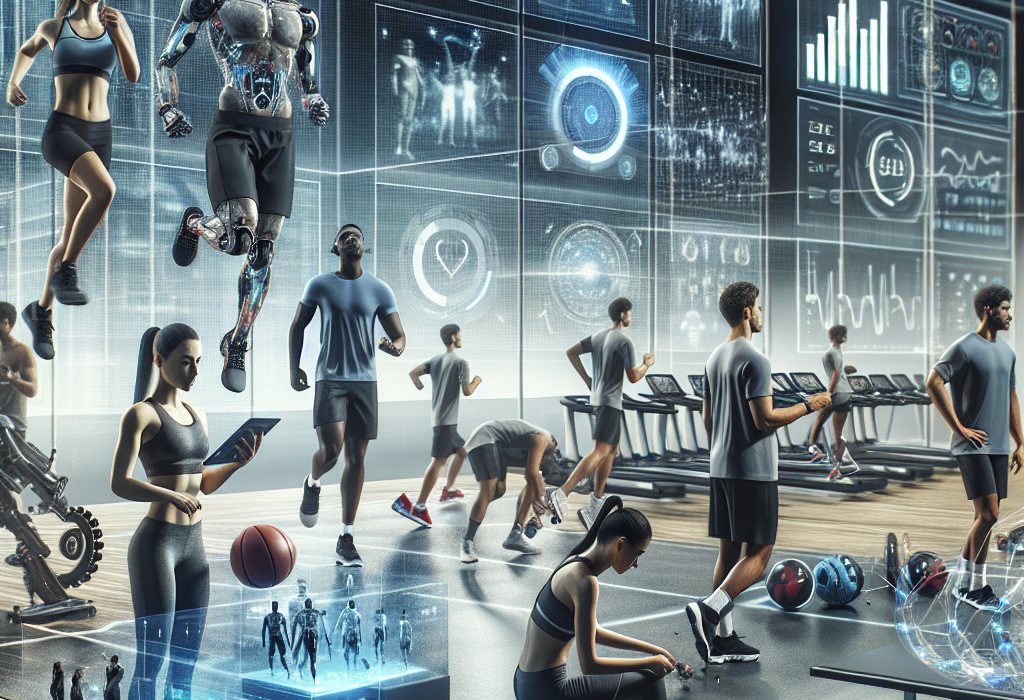The world of sports is ever-evolving, and the prep work that athletes undergo has transformed dramatically over the past few years. From early morning runs and lifting heavy iron to harnessing the power of cutting-edge technology, the training ground today is a marvel of modern science. Here’s how technology is revolutionizing the way athletes prepare for competition.
Data-Driven Decision Making
Gone are the days of guesswork in training routines. Athletes and coaches now rely on sophisticated data analytics to optimize performance. Wearable technology, such as GPS watches and heart rate monitors, collects real-time data on an athlete’s physical condition. This data is then analyzed to provide insights into aspects like endurance, pacing, and recovery.
For example, soccer teams use GPS trackers to monitor the players’ running patterns, speed, and fatigue levels. This data helps coaches decide when a player should train harder or rest, thereby reducing the risk of injury and improving overall performance.
Virtual Reality (VR) Training
Virtual Reality (VR) has transcended from the realm of entertainment to become a powerful tool in athlete preparation. VR allows athletes to simulate game scenarios, practice plays, and improve decision-making skills without any physical exertion.
Quarterbacks in the NFL, for instance, use VR to simulate opposing team defenses and practice their responses. This not only improves their situational awareness but also sharpens their cognitive skills, providing them with a competitive edge on the field.
Biomechanics and Motion Analysis
Biomechanics, the study of the mechanical laws relating to the movement or structure of living organisms, is another area where technology has made significant impacts. High-speed cameras and motion-capture systems break down an athlete’s movements to millisecond frames, allowing detailed analysis of their form and technique.
Cricketers can now analyze their bowling or batting biomechanics to make micro-adjustments that can lead to significant improvements in performance. Similarly, swimmers can dissect their strokes to gain milliseconds that can be the difference between winning and losing.
Hydration and Nutrition Monitoring
Nutrition and hydration are critical for an athlete’s performance, and technology has brought about innovations in this space as well. Smart water bottles that track hydration levels and applications that monitor dietary intake have become invaluable tools.
Nutritional apps provide personalized meal plans based on an athlete’s specific needs and goals, ensuring that they get the right fuel at the right time. Some even offer genetic testing to understand an athlete’s predisposition to certain nutritional requirements, making meal plans even more bespoke.
Recovery Technology
Recovery is as crucial as the training itself, and technology has stepped in to make it more effective. Devices like compression boots, electric muscle stimulators, and infrared saunas are now commonplace in the training rooms of professional athletes.
These technologies help to accelerate recovery by promoting blood flow, reducing muscle soreness, and increasing flexibility. Smart mattresses and sleep trackers ensure that athletes get optimal rest, providing data on sleep quality and patterns so that they can make adjustments as needed.
Mental Training
Mental fortitude is essential for peak performance, and advancements in technology have made it possible to train the mind as rigorously as the body. Apps focused on mindfulness, meditation, and stress management are widely used by athletes to stay mentally sharp.
Biofeedback devices also help athletes to regulate stress levels and improve focus. By monitoring indicators like heart rate variability, athletes can practice techniques to keep their minds calm and focused under pressure.
The Future: AI and Machine Learning
Artificial Intelligence (AI) and Machine Learning (ML) are poised to push the boundaries of sports training even further. These technologies can analyze vast amounts of data to provide deeper insights and predictive analytics.
Imagine a training program that adapts in real-time based on an athlete’s performance metrics, suggesting changes to diet, exercise, and recovery protocols instantaneously. This level of personalization could take athlete performance to unprecedented heights.
Conclusion
Technology has unequivocally reshaped the training landscape in sports. From data analytics and VR simulations to biomechanics and AI, these innovations are driving athletes towards new pinnacles of performance. As technology continues to evolve, one thing is certain: the future of sports training is not just about getting faster or stronger, but also about getting smarter. Athletes who leverage these technological advancements will undoubtedly have the edge in the race for excellence.
















Leave feedback about this
You must be logged in to post a comment.